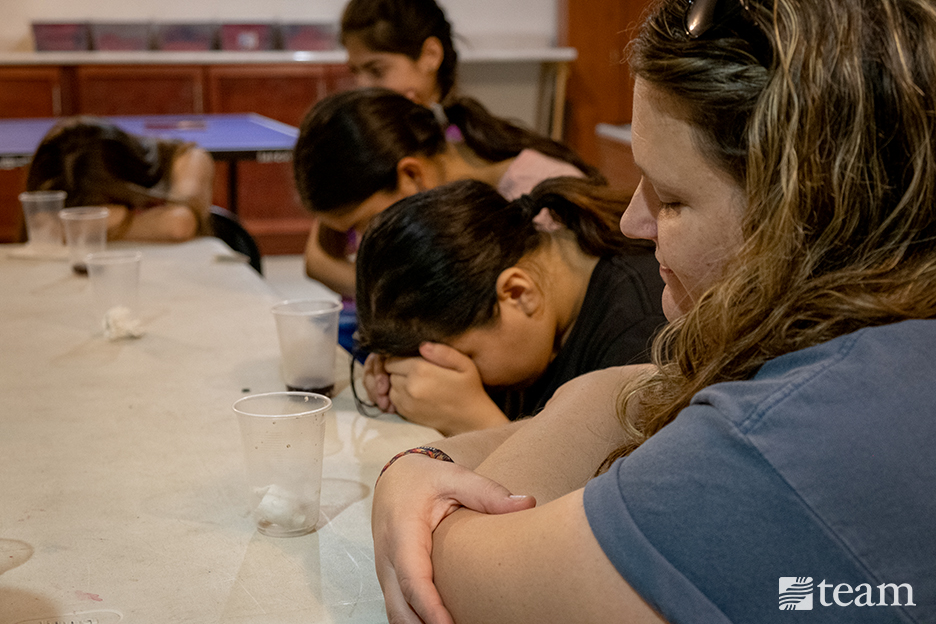
Prayer Focus
How to Pray for Youth and Children’s Ministries
May 2, 2021
by admin

Childhood is one of the easiest seasons of life to embrace the Gospel.
“Kids are not cynical at this age,” says TEAM worker Ellen*, “and they’re open to learning what we have to say. They trust that what an adult is telling them is true.”
But in today’s world, the age of innocence doesn’t last long.
In Southeast Asia, where Ellen serves, girls are sold into the sex trade before they even reach puberty. In South Africa, kids contend with a drug culture that fills their schools and neighborhoods. In Mexico, missionaries share how COVID-19 restrictions have driven many kids to depression as they struggle to get an education.
As these children grow older, it’s easy to see how cynicism will be able to take root — and how the idea of an all-powerful, loving God will become easier to dismiss.
But if we reach these kids now, the love of Christ will shape the way they see all of these hardships. They will learn to walk in faith through a broken world. They will become disciples who see God’s grace in life’s greatest trials.
And they will bring that faith and grace to their families, friends and communities.
Will you join us in lifting up these beautiful children and the people working to reach them? Let’s pray for youth and children’s ministries.
1. Ask God to give workers creativity and adaptability.
Creativity in youth and children’s ministry isn’t just about crafts and game — though that’s often part of it. It also means creativity in finding appropriate venues for ministry, meeting tangible needs and starting deeper conversations
Missionaries in Mexico hold sports classes at a local school, but they aren’t allowed to openly share their faith there. So, before and after classes, they invite kids to a rented building, where they host English classes, times of prayer and other activities. Off government property, they can speak boldly about Jesus and point kids to Him.
In France, COVID-19 restrictions have disrupted a youth camp ministry. TEAM missionary Kevin Marble and other staff were able to put on a day camp with local teens, but they’re still figuring out how to have regular meetings and engage teens who live farther away.
“Pray for creativity to continue to have meaningful contact with the youth here,” Kevin asks. Pray for inspiration as missionaries plan lessons, build relationships and adapt to changing restrictions.
2. Pray for success as missionaries work to keep kids in school and meet other tangible needs.
At the end of 2018, about 258 million children and youth were out of school. And a lack of education sets up children for a lifetime of vulnerability — to poverty, abuse and more. As we care for children’s souls, it’s also vital that we care for their physical futures.
In Southeast Asia, Ellen runs a scholarship program “to encourage parents to keep their children in school as long as possible, instead of selling them to brothels or sending them abroad to earn income for their family.”
But scholarships alone aren’t enough. Without adequate feminine hygiene products, a girl’s period can cause her to miss up to two months of school every year. Ellen is working with local women to provide reusable supplies so girls never have to miss school.
Pray that efforts to keep kids in school with succeed, around the world. As kids struggle with distance learning due to COVID-19, many are dropping out. Pray that these children and teens will return to school and complete their educations.
3. Pray for Gospel conversations with both kids and their families.
Youth and children’s ministry isn’t just about reaching kids — it’s also about reaching families. “If you show love and care for someone’s child, they usually … are interested in knowing what motivates this, opening the door to share about our faith,” says Pattie Eager, TEAM missionary to Mexico.

When kids come to know Christ through children’s ministries, many start praying that their families will know Him, too. Will you join them in prayer?
When children embrace Christ on their own, they may face resistance from their parents. Parents may forbid their children to return to events, or, in nations where evangelism is illegal, they may notify the authorities about the missionary’s work.
But when families embrace Christ together, the Gospel message and Christ’s commands are reinforced at home. Parents and children encourage each other in their faith. And greater community transformation can take place.
Pray that missionaries will be able to build strong relationships with kids and their parents. Ask God to save entire families through youth and children’s ministries!

